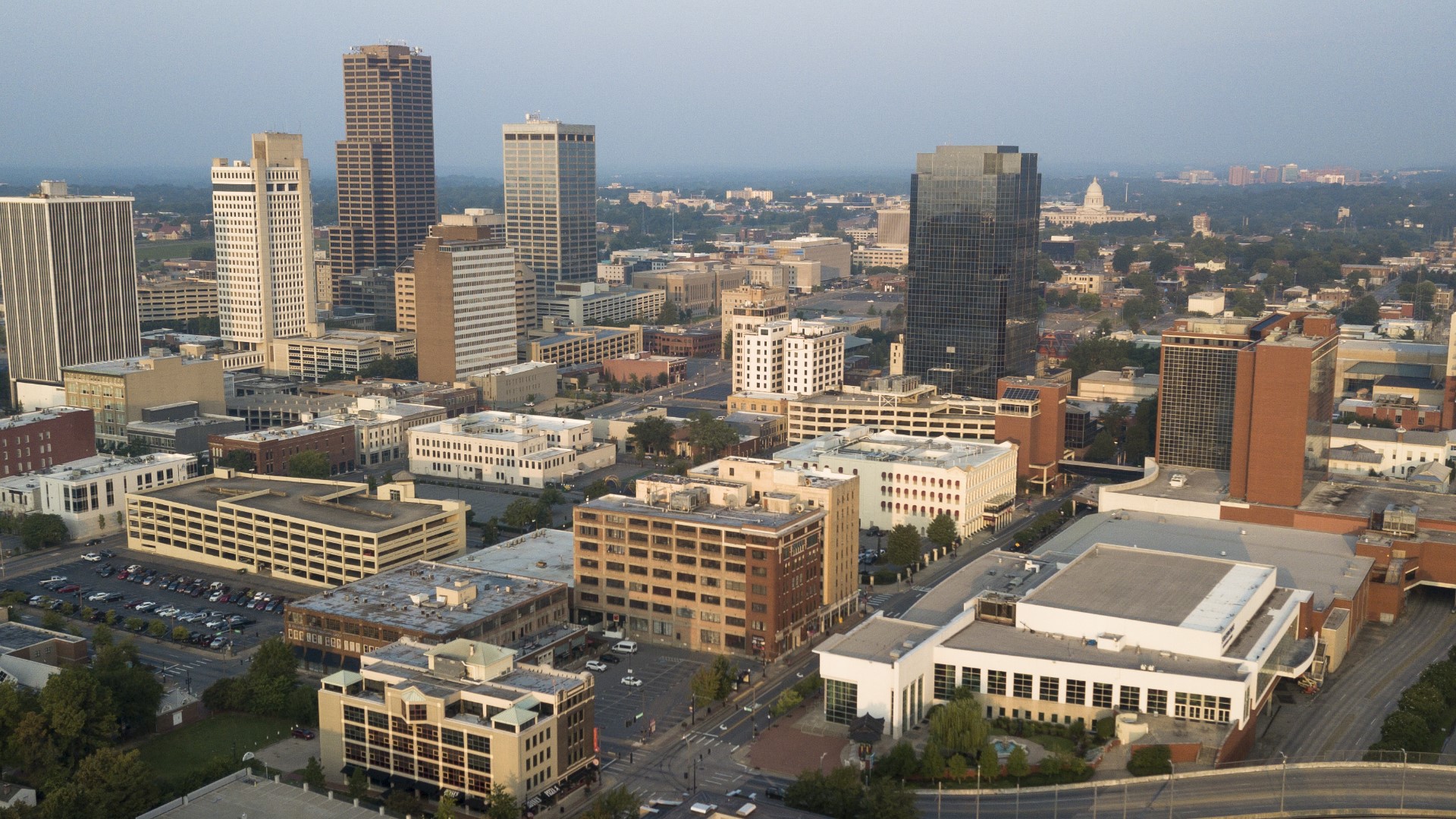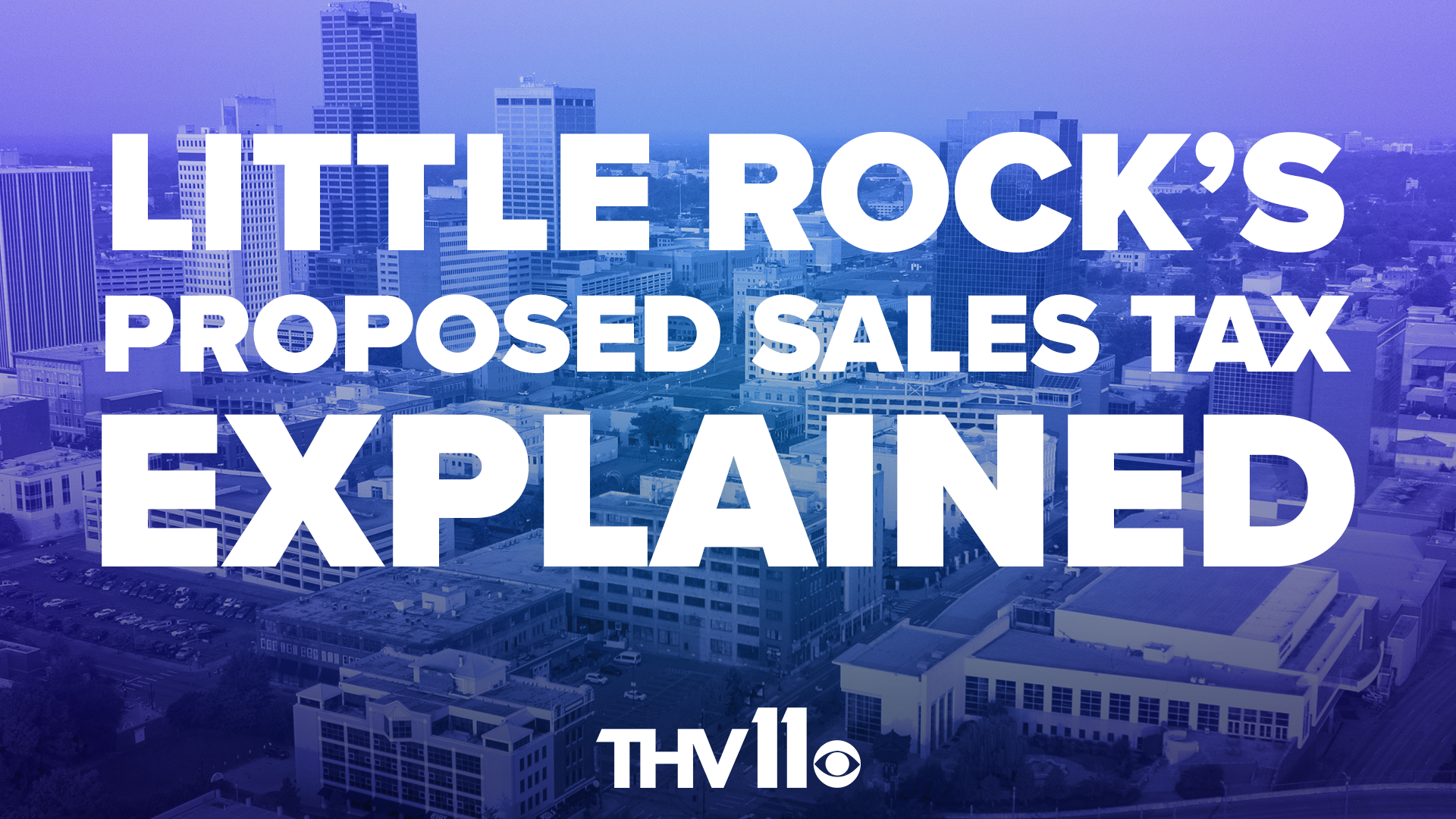Little Rock's proposed sales tax explained
Little Rock voters will decide on Sept. 14 whether they want a new sales tax. We've broken down what it means for the city's future and who it impacts.

Early voting began for the City of Little Rock's proposed "penny tax" on Tuesday, which will raise the current tax rate in the city from 9% to 9.625%.
If you're still unsure about where you stand on the proposal or what it would mean for Arkansas's capital city, below you will find a comprehensive guide that weighs the options and what people for and against the tax are saying.
What is the sales tax proposal?
Under the resolution approved by the Little Rock Board of Directors, voters will decide on September 14 whether to approve a penny sales tax.
If approved by voters, the total sales tax (which includes county and state) will go up from 9% this year to 9.625% next year.
You heard it labeled as a "penny tax," but an old sales tax expires this year, so that's why it doesn't even out to 10%.
Simply put, it will cost you about 68 cents more for every 100 dollars you spend in Little Rock.
If voters say yes, the next tax would begin on January 1, 2022, and would remain in effect for the next decade.
The sales tax increase is expected to bring in roughly $53 million each year, which would mean the proposal would bring in a total of half a billion dollars for the city if it wins at the polls.
The new tax rate would be on par with most neighboring cities in Arkansas and similar to cities in other surrounding states.
Who is behind the tax proposal?
The sales tax proposal is the brainchild of Mayor Frank Scott Jr. as part of his Rebuild the Rock initiative that he unveiled in early 2021.
His proposal breaks down ten key groups that will receive funding under the plan.
Those groups include public safety, economic development, capital improvements, and infrastructure. Some of that includes a new fire station, repaving streets, and parks and trails maintenance.
The proposal also includes funding to address homelessness as well as provide money for affordable housing and early childhood education.
And a few quality of life treats as well. Parks and recreation, golf, fitness, and upgrades for the zoo are in the proposed allocations. The improvements to the zoo include a new giraffe exhibit.
You can view a full breakdown of where the money raised will go by clicking here.
How much will it cost me?
The bigger concern people will have is how much the increase will cost the average person.
Let's say you spend $1,000 per month on taxable items, the additional tax will cost you $10 more a month. That would mean an extra $120 over an entire year for things like groceries, clothing, and other services like a gym membership.
Now keep in mind, some people would end up paying more and others would pay less. It all depends on how much you spend each month.
Where do I vote?
If you plan to vote early, you have from September 7 until September 13 to cast your ballot at either the Pulaski County Regional Building or six other locations.
Polls will open on Tuesday, September 14 from 7:30 a.m. until 7:30 p.m. at your registered voting location. You can click here to get a full summary of all the polling locations.
Reminder: You are still eligible to vote if you are still in line at 7:30 p.m.
What do supporters say?
Over the past six months, Mayor Scott has asked voters to support the city's $530 million sales tax proposal as part of his Rebuild the Rock initiative.
Scott told us that he wants people to understand this is a "replacement initiative."
"We have a 3/8 cent sales tax that is going to expire because the voters said they only wanted to keep it for 10 years and there is the opportunity to renew again," the mayor said. "This gives us the opportunity to renew the 3/8 cent sales tax, but also with a modest increase."
Numbers and money aside, Scott said the focus of his plan is about long-term growth.
"[It has] everything a city needs to grow," he said. "This sales tax has it in it."
Over the past decade, the city calculated a growth rate of about 5 percent. For the first time in Little Rock's history, the city surpassed the 200,000 population mark, according to the latest census.
To keep this momentum going, Scott said the bottom line is that it'll take money to grow.
"Parks have not seen an increase in their maintenance dollars since I was a young kid growing up in southwest Little Rock," he said, "we're going to be putting more investment into every park across our entire city."
Gabe Holstrom, executive director of the Downtown Little Rock Partnership, said some of the city's parks look a little dated and sees the benefit in the sales tax to modernize our city.
"I think those are the things that I would encourage people to take a look at," Holstrom said. "Are they happy with the status quo or would they like to see a bigger, better Little Rock?"
An estimated $12 million would be allocated to parking decks downtown, $5 million toward a 15-acre downtown park, and another $5.5 million for the Downtown Ambassador Safety Program.
Holstrom said that program is something major cities across the country have seen success with.
"We want to replicate that model and install our own ambassadors up and down Main Street, in the River Market, in SoMa to provide people who are coming out at night a sense of security," he said.
"This sales tax is more than just about the investments," Mayor Scott told us, "it's about creating opportunity, not just for my generation, but for two and three generations behind me."
What do opponents say?
There are some, including city leaders, who question if it's the right time for the city to pass a sales tax increase.
Patrick Flanigan, a Little Rock resident, told us he will vote against the sales tax increase. He's concerned about paying more because prices on everyday items have already been rising.
"Having the tax put on them when food is inflationary. I mean, it's just a bad thing and to me, it's a moral issue," he said.
Vice Mayor Lance Hines questioned if the city really needed the increase or not.
Hines tried to keep the plan from getting on the ballot and now backs an opposition group called Responsible Taxation for Little Rock.
He doesn't agree with raising taxes during a pandemic, especially when a large portion is set to go to parks and the Little Rock Zoo.
"The zoo is getting $40 million for a giraffe exhibit and another smaller exhibit and $10 million to operate on," Hines said. "It doesn't make sense. The priorities are out of whack."
According to a breakdown of the proposed spending, the Little Rock Zoo would be allocated $20 million for a giraffe exhibit, $10 million for a North America habitat, and another $10 million for "net operations increase, including new exhibits."
Hines said the city has a surplus of millions of dollars from last year and the beginning of this year and questions the need for a tax increase. Instead, he proposes keeping the tax rate at the current rate.
"I honestly think the only thing we could justify right now is going out and asking to renew our 3/8 cent [tax] to continue to do capital projects," he said.
Regardless if you plan to vote for or against the sales tax, officials and city leaders encourage you to make your voice heard by casting a ballot on September 14.


